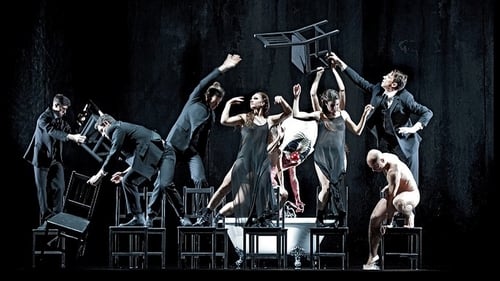
"This is a family tragedy, and in many ways, it is a very contemporary story." This is how Robert Wilson described Il trovatore, or Le Trouvère in its French version, commissioned from Verdi after the incredible success of the premiere of his Italian version in 1853. With a few changes and alterations to the original music, this version was first performed in 1857 at the Paris Opera. A light show unique to the stage director unfolds in the cold architecture, creating the perfect framing for Verdi’s music, dramatic and dark in this timeless opera.

Conspiracies and regattas form the backdrop to the fortunes of a young singer. Harassed by a heartless spy, she sacrifices everything to save the man she loves and the woman he prefers over her. Ponchielli based his flamboyant opera on Victor Hugo’s play Angelo, tyrant of Padua. An expert on Hugo, director Olivier Py offers us a dream-like version of this dark Romantic tragedy, presided over by sex and death. Paolo Carignani conducts an exceptional cast in the six demanding main roles.

Amonasro
"This is Vienna State Opera live at home". March 2015.

Il Conte di Luna
To stage Verdi's Il Trovatore, according to Arturo Toscanini, you need to bring together the four best singers in the world. This stunning production at Milan's La Scala unites four luminaries of today's opera scene to great effect: with his lilting legato, Marcelo Álvarez (Manrico) does justice to the opera's bel canto character; Franco Vassallo brings assurance and flair to the Count di Luna; Maria Agresta (Leonora) effortlessly rises to the challenges of the score; and Ekaterina Semenchuk (Azucena) also masters the most difficult notes. With the fastidious Daniele Rustioni leading La Scala's world-class orchestra, the music leads the action apace, resounding alongside the hall's legendary chorus and amid monumental sets and decor in this sublime production of one of the world's favorite operas.

Ford
Music Director James Levine conducts his first new Met production after a two-year absence: Robert Carsen’s hit staging of Verdi’s great human comedy. Ambrogio Maestri is an ideal Falstaff, leading an extraordinary ensemble cast of veteran and up-and-coming Met stars, including Angela Meade (Alice), Stephanie Blythe (Mistress Quickly), Franco Vasallo (Ford), and Jennifer Johnson Cano (Meg). Lisette Oropesa and Paolo Fanale are the young lovers, Nannetta and Fenton.

Don Alfonso, Duca di Ferrara
Live from Munich 2009

Sir Riccardo Forth
It's hard to imagine a video opera collection without this superbly sung MET production of Bellini's I Puritani. Not that it's perfect by any means, but its excellences--most especially Anna Netrebko's electrifying singing and acting of Elvira--banish carping about other aspects of this memorable night at the opera. Netrebko is fragile from the start, her facial expressions and hand movements immediately conveying the girl's vulnerability. She has a mad scene in each act; the first when she realizes her fiancé has disappeared with another woman, the third, in the final act, a brief relapse when her returned fiancé is taken by the army to be executed. But it's in the second act that the real fireworks occur, with a Mad Scene that rivals Donizetti's Lucia for bel canto primacy. Here, Elvira is first heard off-stage, after the chorus has informed us that she's deranged. She enters wearing her wedding gown and begins Qui la voce in a voice as frail as her psyche.

Renato
Live performance from Oper Leipzig, 26 November 2005.

Egberto
Discover this rare Verdian jewel! Aroldo—one of the composer’s least performed works—premiered in 1857 in Rimini, Italy. The work was created in response to the censorship of Verdi’s 1849 Stiffelio, whose tale of a protestant pastor publicly pardonning an adulterer and his wife proved too scandalous for 19th-century Italian society. In creating Aroldo, Verdi’s librettist and collaborator Francesco Maria Piave transposed Stiffelio’s story and characters to the more distant setting of Great Britain at time of the Crusades, and the composer took advantage of this new version to add a fourth act to the opera, and to rewrite part of the first act as well as a few arias.





